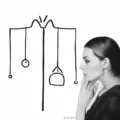Understanding the “Playing Hard to Get” Strategy
“Playing hard to get” is a dating strategy that has been popularized in movies, TV shows, and relationship advice columns for decades. The idea is to appear aloof and disinterested to make yourself seem more desirable and intriguing to potential romantic partners. While this approach may seem clever on the surface, it often leads to more harm than good in building genuine, healthy relationships.
The Psychology Behind Playing Hard to Get
The concept of playing hard to get is rooted in psychological principles like scarcity and the “challenge theory.” When something (or someone) appears less available, it can create a sense of perceived value and desirability. This taps into our natural tendency to want what we can’t easily have.
However, this strategy fails to account for the importance of open communication, vulnerability, and authenticity in forming meaningful connections. By intentionally creating distance and confusion, we risk sabotaging potential relationships before they even begin.
The Negative Impacts on Emotional Wellbeing
Playing hard to get can take a toll on both the person employing the strategy and the object of their affection:
- Anxiety and stress: Constantly monitoring and modulating your behavior to appear disinterested is mentally exhausting.
- Miscommunication: Your true feelings and intentions may be completely misunderstood.
- Missed opportunities: Potential partners may give up and move on if they feel consistently rejected or ignored.
- Emotional disconnect: It’s difficult to form genuine emotional bonds when you’re putting on an act.
Fostering Authentic Connections
Instead of playing games, focus on building authentic connections based on mutual respect, open communication, and genuine interest. Here are some healthier approaches to dating and relationships:
- Be yourself: Authenticity is attractive. Let your true personality shine through.
- Communicate clearly: Express your feelings and intentions honestly and directly.
- Show genuine interest: If you like someone, don’t be afraid to show it through your words and actions.
- Respect boundaries: While it’s good to show interest, also respect the other person’s space and pace.
- Focus on building a connection: Prioritize getting to know the other person rather than trying to manipulate their feelings.
The Value of Vulnerability in Relationships
Vulnerability is often seen as a weakness, but in reality, it’s a strength that can lead to deeper, more meaningful relationships. By allowing ourselves to be open and honest about our feelings, we create opportunities for true intimacy and connection.
When we play hard to get, we put up walls that prevent others from seeing our authentic selves. This can lead to superficial relationships based on false perceptions rather than genuine understanding and appreciation.
Balancing Interest and Independence
It’s important to note that being authentic and showing interest doesn’t mean becoming clingy or losing your sense of self. Healthy relationships involve a balance of closeness and independence. You can show genuine interest while still maintaining your own life, hobbies, and friendships.
The key is to be honest about your feelings and intentions while also respecting the other person’s boundaries and need for space. This approach allows for a natural, organic development of the relationship without the need for manipulative tactics.
FAQ: Navigating Relationships Without Playing Games
Q1: Isn’t playing hard to get just a way to protect myself from getting hurt?
A1: While it may feel like a form of self-protection, playing hard to get often backfires by creating emotional distance and preventing genuine connections. It’s healthier to be honest about your feelings while also maintaining healthy boundaries.
Q2: How can I show interest without coming on too strong?
A2: Be genuine in your interactions, express interest through thoughtful gestures and conversation, but also respect the other person’s space. It’s about finding a balance between showing you care and not overwhelming them.
Q3: What if the other person is playing hard to get with me?
A3: Communication is key. Express your feelings honestly and ask for clarity about theirs. If they continue to be evasive or manipulative, it may be a sign that they’re not ready for a healthy relationship.
Q4: How do I maintain my independence in a relationship without seeming disinterested?
A4: Communicate openly about your need for personal time and space. Healthy relationships involve two individuals who support each other’s growth and independence while also nurturing their connection.
Q5: Is it ever okay to play hard to get?
A5: While it’s natural to want to create intrigue, intentionally playing games is generally not conducive to building healthy relationships. Focus on being authentic and allowing the relationship to develop naturally.
Embracing Authenticity in Love and Life
In conclusion, while playing hard to get may seem like a clever strategy, it often leads to misunderstandings, missed opportunities, and emotional distress. By embracing authenticity, open communication, and genuine vulnerability, we create the foundation for meaningful, fulfilling relationships.
Remember, the goal of dating and relationships is not to “win” or manipulate someone’s feelings, but to find a compatible partner with whom you can share a genuine connection. By being true to yourself and honest about your feelings, you open the door to deeper, more satisfying relationships based on mutual understanding and respect.
As you navigate the world of dating and relationships, prioritize authenticity, kindness, and clear communication. These qualities will serve you far better than any game-playing tactics, leading to connections that are not only more rewarding but also more likely to stand the test of time.









